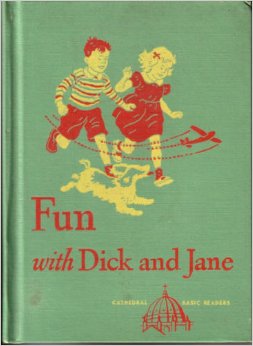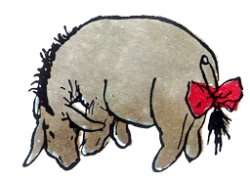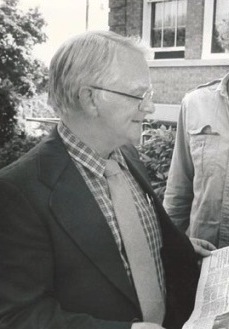 Our guest: Mark Alpert is a Manhattan-based author whose novels include Omega Theory (Simon & Schuster, 2011) and Extinction (St. Martin’s, 2014). His latest, The Six, is out July 7, 2015 from Sourcebooks Fire. He is also a contributing editor at Scientific American.
Our guest: Mark Alpert is a Manhattan-based author whose novels include Omega Theory (Simon & Schuster, 2011) and Extinction (St. Martin’s, 2014). His latest, The Six, is out July 7, 2015 from Sourcebooks Fire. He is also a contributing editor at Scientific American.
The Proust-Esque Questionnaire is based on a set of 36 standardized questions designed by Marcel Proust in the 1890’s to give an overview of the respondent’s personality. Our goals are less lofty, but hopefully will provide some insight into how your favorite authors and illustrators work and what they love.
 1. WHAT IS YOUR EARLIEST MEMORY OF CHILDREN’S LITERATURE?
1. WHAT IS YOUR EARLIEST MEMORY OF CHILDREN’S LITERATURE?
My earliest memory of children’s literature is Fun With Dick and Jane, the book that used to be the standard primer for teaching first-graders how to read. Everyone above a certain age remembers it. The book’s educational approach was straightforward: Repeat a small number of simple words as frequently as possible, then slowly introduce a few new words. “Watch Dick run. Run, Dick, run! Watch Jane run. Dick and Jane can run!”
For good reason, many people really hated the book, and it inspired them to write much more interesting books for beginning readers. (The Cat in the Hat is perhaps the best example, but there are thousands of others.) But I’m not a Dick and Jane-hater. The primer served its purpose. I was illiterate when I opened the book, but by the end I knew how to read. I clearly remember the feeling of exhilaration – I can do this! This is easy!
 2. WITH WHICH CHILDREN’S LITERATURE CHARACTER DO YOU MOST IDENTIFY?
2. WITH WHICH CHILDREN’S LITERATURE CHARACTER DO YOU MOST IDENTIFY?
I identify with Eeyore, the sad stuffed donkey in the Winnie-the-Pooh stories. Like Eeyore, I tend to see the negative rather than the positive. When someone finds Eeyore’s lost tail and pins it to his behind, his reaction is, “Thanks, but I’ll probably just lose it again,” and that’s the way I feel most of the time. Except my condition is a little more pathological than Eeyore’s:  whenever I walk into a new place, I scan the area and look for all the things that could possibly kill me. This is an unfortunate tendency in general, but it’s turned out to be very useful when I’m writing thrillers. In a thriller, you want the characters to face as much danger as possible, so my macabre imagination comes in handy.
whenever I walk into a new place, I scan the area and look for all the things that could possibly kill me. This is an unfortunate tendency in general, but it’s turned out to be very useful when I’m writing thrillers. In a thriller, you want the characters to face as much danger as possible, so my macabre imagination comes in handy.
3. WHO IS YOUR FAVORITE CHILDREN’S BOOK AUTHOR? ILLUSTRATOR?
My favorite children’s author and illustrator is Dr. Seuss. My favorite Dr. Seussbook is On Beyond Zebra, and my favorite page in that book is the one featuring the letter FLOOB, which is used to spell Floob-Boober-Bab-Boober-Bubs (“who bounce in the water like blubbery tubs”). I loved the idea of imagining new letters for the alphabet, and the illustrations in that book are equally fantastical.
 4. IF YOU WERE THROWING A KINDERLIT PARTY FOR FIVE GUESTS, WHO WOULD YOU INVITE?
4. IF YOU WERE THROWING A KINDERLIT PARTY FOR FIVE GUESTS, WHO WOULD YOU INVITE?
For my KinderLit dinner party, I’d definitely invite Lord Voldemort from the Harry Potter books. I’d like to hear his side of the story. But I’d ask him not to bring his giant snake, which would be a little distracting. I’d also invite Atticus and Scout Finch from To Kill a Mockingbird. Back in the 1980s I worked as a newspaper reporter in Alabama, and I wrote many  stories about the civil-rights movement in that state, so I know something about where the Finches came from and what they were struggling against. I’d invite Ender from Ender’s Game because he seems like a brilliant kid and I’d love to talk to him about spaceship battles. And to round out the party, I’d invite Holden Caulfield from The Catcher in the Rye. He’d probably call me a big phony, but it would be interesting to see him argue with Atticus and Voldemort.
stories about the civil-rights movement in that state, so I know something about where the Finches came from and what they were struggling against. I’d invite Ender from Ender’s Game because he seems like a brilliant kid and I’d love to talk to him about spaceship battles. And to round out the party, I’d invite Holden Caulfield from The Catcher in the Rye. He’d probably call me a big phony, but it would be interesting to see him argue with Atticus and Voldemort.
5. WHICH QUALITY DO YOU THINK IS MOST IMPORTANT IN GOOD CHILDREN’S LITERATURE?
I think honesty is the most important quality in children’s literature. Kids are very good at sniffing out lies and evasions. They want to hear the truth, so why not give it to them? But that doesn’t mean children’s books have to be realistic. Fantasy and science fiction can be honest too.
6. IF YOUR OWN WORK HAS A DEFINING CHARACTERISTIC, WHAT WHAT IS IT?
All my novels are about the near future, the future that today’s teenagers will experience. The Six is about the Singularity, the moment when machine intelligence  will leap past human intelligence, an event that many futurists believe will happen sometime in the next fifty years. It’s a moment fraught with danger because artificial intelligence programs might develop their own agendas and decide that the human race doesn’t fit into their plans. But it also presents an opportunity for humans to move past their limitations and achieve a kind of immortality by downloading the contents of their minds into computer circuits.
will leap past human intelligence, an event that many futurists believe will happen sometime in the next fifty years. It’s a moment fraught with danger because artificial intelligence programs might develop their own agendas and decide that the human race doesn’t fit into their plans. But it also presents an opportunity for humans to move past their limitations and achieve a kind of immortality by downloading the contents of their minds into computer circuits.
That’s what happens to the six dying teenagers in my novel. They give up their failing bodies and transfer their minds to hulking, weaponized U.S. Army robots. Forming a team called the Pioneers, they must learn how to control their new steel-and-silicon bodies and use them to battle an out-of-control artificial intelligence that has taken over a nuclear missile base. It’s a story full of epic action — what could be better than fighting robots? — but it also makes you think about some big questions: What is the soul? If it can travel with one’s memories all the way to the Afterlife, couldn’t it also make a short hop into a computer? Or is human identity strictly tied to the human body, and is death the absolute end of consciousness?
 7. IF YOU WERE TO DIE AND COME BACK AS A CHARACTER FROM CHILDREN’S LITERATURE, WHO WOULD YOU LIKE IT TO BE?
7. IF YOU WERE TO DIE AND COME BACK AS A CHARACTER FROM CHILDREN’S LITERATURE, WHO WOULD YOU LIKE IT TO BE?
Speaking of the Afterlife, if I were to die and be reincarnated as a literary character, I’d choose to come back as Superman. Imagine all the problems I could solve if I was Superman! I’d fly to the Middle East and use the heat rays from my eyes to melt all the guns. And then I’d do the same thing in Africa and Russia and America. Then I’d the circle the globe a few times just for fun, and do some relaxing at my Fortress of Solitude. What a great gig!
8. IF YOU COULD GO BACK AND REDO ONE THING IN YOUR WORK, WHAT WOULD IT BE?
I refuse to even think about redoing anything in my published books, because I know there are million things I could’ve done better. I work hard at revising my books and trying to make them as good as possible, but once a book is published, it’s done. Then it’s time to write another book. Whatever lessons I’ve learned, I’ll apply them to the next novel.
9. WHAT IS THE GREATEST PIECE OF ADVICE YOU WERE EVER GIVEN?
 The best piece of advice I ever received came from Ed Rogers (left), a former managing editor of the Scranton Times, where I worked as a cub reporter in the summer of 1983. He assigned me to write about a senior citizen center in Scranton. When I informed him that the newspaper had already run several stories about the place, he said, “That’s right, we’ve written about it. But you haven’t.” The message I got was that each writer has a uniquely valuable perspective. But when I saw Rogers again in 2009 and mentioned this
The best piece of advice I ever received came from Ed Rogers (left), a former managing editor of the Scranton Times, where I worked as a cub reporter in the summer of 1983. He assigned me to write about a senior citizen center in Scranton. When I informed him that the newspaper had already run several stories about the place, he said, “That’s right, we’ve written about it. But you haven’t.” The message I got was that each writer has a uniquely valuable perspective. But when I saw Rogers again in 2009 and mentioned this  long-ago conversation, he had no memory of it whatsoever. Did it really happen? Now, I’m not so sure.
long-ago conversation, he had no memory of it whatsoever. Did it really happen? Now, I’m not so sure.
10. DESCRIBE YOUR WORK PROCESS.
My work process is slow and laborious. Writing a thousand words a day shouldn’t be that hard, and yet I struggle with it. My mind is flighty, and I have to constantly rein it in and keep it on task. My motto is, “The hardest sentence to write is the next one.” (And my desk is a mess. Just look at it.)
MARK ALPERT: OFFICIAL WEBSITE | FACEBOOK | TWITTER

